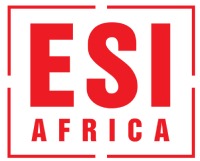SA launches African Energy Efficiency Facility initiative at G20 side event
Political commitment from African nations and international partners is essential to drive policy implementation
In a significant step toward sustainable development across the continent, Deputy Minister of Electricity and Energy, Samantha Graham-Maré, announced the formation of the African Energy Efficiency Facility (AEEF) during the opening of the G20 Energy Transitions Working Group side event.
This announcement marks a pivotal moment in South Africa’s G20 presidency, which runs from December 2024 to November 2025, emphasising Africa’s role in global energy discussions.
The AfEEF, set for an official launch in December 2025 at an African Union (AU) meeting in Addis Ababa, Ethiopia, aims to deliver affordable and efficient power solutions aligned with the AU’s Agenda 2063. Agenda 2063 is the continent’s strategic framework for socio-economic transformation, envisioning an integrated, prosperous, and peaceful Africa by 2063.
By focusing on energy productivity enhancements, the facility seeks to reduce carbon emissions significantly while fostering economic growth through targeted investments in energy efficiency projects. Notably, it is projected to create up to 1 million green jobs, addressing unemployment and skill development in renewable sectors.
Role of energy efficiency in Africa’s energy agenda
During the opening session, speakers highlighted several critical pillars for the facility’s success.
“The idea of the African Energy Efficiency Facility, marks a proud moment in our journey as a continent and as South Africa, under our G20 presidency.
“This initiative is not only a legacy project of our presidency but a practical response to Africa’s energy and development needs. It is the fruit of collaboration between the Department of Electricity and Energy, the African Union Commission through AFREC and the United Nations Environment Programme (UNEP),” explained Graham-Maré.
Speakers pointed out that political commitment from African nations and international partners is essential to drive policy implementation. Mobilising $3billion in financing will be key, drawing from public, private and multilateral sources to fund initiatives.
The creation of regional hubs via established Regional Economic Communities (RECs), such as the Southern African Development Community (SADC) and the Economic Community of West African States (ECOWAS), will ensure localised execution and knowledge sharing. Harmonising energy efficiency policies across borders will standardise practices, while robust monitoring mechanisms will track progress and impact.
With energy efficiency as a cornerstone of South Africa’s G20 energy agenda, the AEEF underscores energy efficiency as a driver for affordability, universal energy access, climate resilience and inclusive growth. The facility will serve as a platform for finance, technical assistance and capacity building to deploy innovative solutions, such as efficient appliances and industrial upgrades.
This initiative not only supports global climate goals under the Paris Agreement but also positions Africa as a leader in just energy transitions.
Experts praise the AEEF as a legacy of South Africa’s G20 tenure, potentially transforming energy landscapes amid rising demands and environmental challenges. By prioritising efficiency, Africa can leapfrog traditional energy models, ensuring sustainable development for future generations.
Cover photo: pproman©123rf


